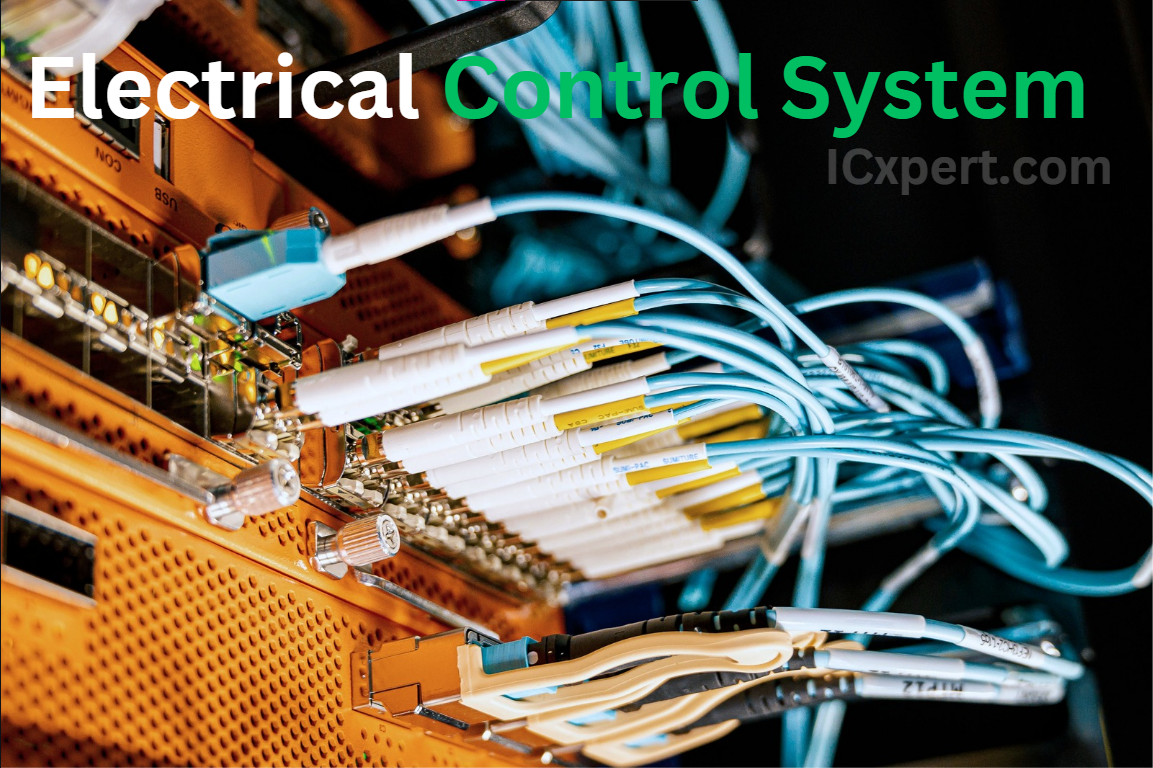1. Understanding Control Systems in Electrical Engineering
Control systems in electrical engineering are crucial for managing and regulating the behavior of dynamic systems. These systems ensure stability, efficiency, and performance in various applications, ranging from industrial machinery to everyday household appliances.
2. The Role of Feedback in Control Systems
What is Feedback?
Feedback is a core concept in control systems. It refers to the process of taking a portion of the output signal and returning it to the input to maintain desired performance. Feedback can be either positive or negative, with negative feedback being more common in engineering to stabilize system behavior.
Importance of Feedback in Control Systems
Feedback helps to correct errors and maintain the stability of a system. For example, in a thermostat, feedback ensures the temperature remains at the set point by adjusting the heating or cooling elements as needed.
3. Types of Control Systems
Open-Loop Control Systems
Open-loop systems operate without feedback. These systems follow a predetermined sequence of operations, and their performance relies heavily on the accuracy of their design and calibration. An example is a washing machine, which runs through a fixed set of cycles.
Closed-Loop Control Systems
Closed-loop systems, also known as feedback control systems, adjust their operations based on feedback from the output. This type of system can correct deviations and is more robust against disturbances. Examples include cruise control in vehicles and automatic voltage regulators.
4. Key Components of Control Systems
Sensors
Sensors detect changes in the environment and provide data to the control system. In electrical engineering, common sensors include temperature sensors, pressure sensors, and light sensors.
Controllers
Controllers process input from sensors and determine the appropriate response. They can be simple devices like thermostats or complex systems like programmable logic controllers (PLCs).
Actuators
Actuators execute the control actions determined by the controller. Examples include motors, valves, and heaters.
5. Applications of Control Systems in Electrical Engineering
Control systems are integral to many electrical engineering applications. They are used in power generation and distribution, manufacturing automation, robotics, aerospace, and consumer electronics.
Power Systems
In power systems, control systems manage the generation, transmission, and distribution of electrical power, ensuring reliability and efficiency.
Manufacturing Automation
In manufacturing, control systems optimize processes, improve quality, and increase production rates. Automated assembly lines and robotic arms are prime examples.
Robotics
Robots rely on sophisticated control systems to perform tasks with precision and adapt to changing conditions. These systems coordinate movements and operations based on sensor input.
6. The Future of Control Systems in Electrical Engineering
The future of control systems in electrical engineering looks promising with advancements in technology. Developments in artificial intelligence (AI) and machine learning (ML) are paving the way for more intelligent and adaptive control systems. These advancements will enhance the capability and flexibility of control systems, making them more efficient and responsive to dynamic environments.
7. Related Topics
Advanced Control Strategies
Explore advanced control strategies such as adaptive control, robust control, and optimal control to understand how they enhance system performance in complex scenarios.
Sensor Technology
Delve into the latest developments in sensor technology, which play a critical role in improving the accuracy and reliability of control systems.
Automation and Robotics
Discover how automation and robotics are revolutionizing industries with the help of sophisticated control systems, boosting productivity and innovation.
Power System Stability
Learn about power system stability and how control systems contribute to maintaining reliable and efficient electrical grids.
AI in Control Systems
Investigate the impact of artificial intelligence on control systems, focusing on how AI-driven approaches are transforming the field.
8. Conclusion
Control systems in electrical engineering are fundamental to the operation and stability of numerous applications. From maintaining the temperature in your home to managing complex industrial processes, control systems ensure efficiency and reliability. With ongoing advancements in technology, the future holds exciting prospects for more intelligent and adaptive control systems, further enhancing their role in various fields.
FAQs
- What are control systems in electrical engineering?
Control systems are frameworks that manage, command, direct, or regulate the behavior of other devices or systems. They are essential in electrical engineering for automation and process control. - What are the main types of control systems?
The main types include open-loop control systems, closed-loop control systems, linear control systems, and nonlinear control systems, each serving different applications and requirements. - How do control systems impact automation?
Control systems are crucial for automation as they enable machines and processes to operate with minimal human intervention, enhancing efficiency and reliability. - What are some recent advancements in control systems technology?
Recent advancements include the integration of artificial intelligence, machine learning algorithms, and the development of intelligent control systems that adapt to changing environments. - Where can I find conferences on control systems in 2024?
Numerous conferences are scheduled globally, including the International Conference on Control Science and Systems Engineering and various IEEE-sponsored events focusing on control systems and electrical engineering.


